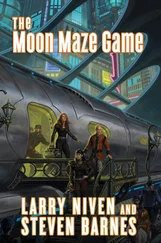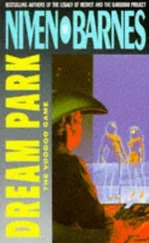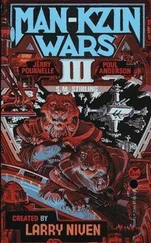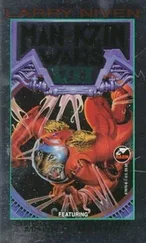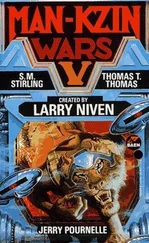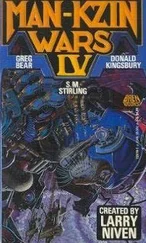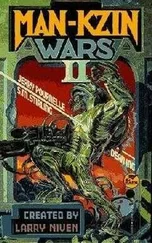Larry Niven - The Fourth Profession
Здесь есть возможность читать онлайн «Larry Niven - The Fourth Profession» весь текст электронной книги совершенно бесплатно (целиком полную версию без сокращений). В некоторых случаях можно слушать аудио, скачать через торрент в формате fb2 и присутствует краткое содержание. Год выпуска: 1971, Издательство: Paperback Library, Жанр: Фантастика и фэнтези, на английском языке. Описание произведения, (предисловие) а так же отзывы посетителей доступны на портале библиотеки ЛибКат.
- Название:The Fourth Profession
- Автор:
- Издательство:Paperback Library
- Жанр:
- Год:1971
- ISBN:нет данных
- Рейтинг книги:3 / 5. Голосов: 1
-
Избранное:Добавить в избранное
- Отзывы:
-
Ваша оценка:
- 60
- 1
- 2
- 3
- 4
- 5
The Fourth Profession: краткое содержание, описание и аннотация
Предлагаем к чтению аннотацию, описание, краткое содержание или предисловие (зависит от того, что написал сам автор книги «The Fourth Profession»). Если вы не нашли необходимую информацию о книге — напишите в комментариях, мы постараемся отыскать её.
The Fourth Profession — читать онлайн бесплатно полную книгу (весь текст) целиком
Ниже представлен текст книги, разбитый по страницам. Система сохранения места последней прочитанной страницы, позволяет с удобством читать онлайн бесплатно книгу «The Fourth Profession», без необходимости каждый раз заново искать на чём Вы остановились. Поставьте закладку, и сможете в любой момент перейти на страницу, на которой закончили чтение.
Интервал:
Закладка:
“There are two sides to a coin,” I said. “Now, I know how this is going to sound. Just remember there are reasons. Good reasons.”
“Reasons? Reasons for what?”
“When a trading ship travels,” I said, “it travels only from one civilized system to another. There are ways to tell whether a system has civilization that can build a launching laser. Radio is one. The Earth puts out as much radio flux as a small star.
“When the Monks find that much radio energy coming from a nearby star, they send a trade ship. By the time the ship gets there, the planet that’s putting out all the energy is generally civilized. But not so civilized that it can’t use the knowledge a Monk trades for.
“Do you see that they need the launching laser? That ship out there came from a Monk colony. This far from the axis of the galaxy, the stars are too far apart. Ships launch by starlight and laser, but they brake by starlight alone, because they can’t count on the target star having a launching laser. If they had to launch by starlight too, they probably wouldn’t make it. A plant-and-animal cycle as small as the life support system on a Monk starship can last only so long.”
“You said yourself that the Monks can’t always count on the target star staying civilized.”
“No, of course not. Sometimes a civilization hits the level at which it can build a launching laser, stays there just long enough to send out a mass of radio waves, then reverts to animal. That’s the point. If we tell them we can’t build the laser, we’ll be animals to the Monks.”
“Suppose we just refuse? Not can’t but won’t .”
“That would be stupid. There are too many advantages. Controlled fusion…”
“Frazer, think about the cost.” Morris looked grim. He wanted the laser. He didn’t think he could get it. “Think about politicians thinking about the cost,” he said. “Think about politicians thinking about explaining the cost to the taxpayers.”
“Stupid,” I repeated, “and inhospitable. Hospitality counts high with the Monks. You see, we’re cooked either way. Either we’re dumb animals, or we’re guilty of a criminal breach of hospitality. And the Monk ship still needs more light for its light-sail than the sun can put out.”
“So?”
“So the captain uses a gadget that makes the sun explode.”
“The,” said Morris, and “He,” and “Explode?” He didn’t know what to do. Then suddenly he burst out in great loud cheery guffaws, so that the women cleaning the Long Spoon turned with answering smiles. He’d decided not to believe me.
I reached across and gently pushed his drink into his lap.
It was two-thirds empty, but it cut his laughter off in an instant. Before he could start swearing, I said, “I am not playing games. The Monks will make our sun explode if we don’t build them a launching laser. Now go call your boss and tell him so.”
The women were staring at us in horror. Louise started toward us, then stopped, uncertain.
Morris sounded almost calm. “Why the drink in my lap?”
“Shock treatment. And I wanted your full attention. Are you going to call New York?”
“Not yet.” Morris swallowed. He looked down once at the spreading stain on his pants, then somehow put it out of his mind. “Remember, I’d have to convince him. I don’t believe it myself. Nobody and nothing would blow up a sun for a breach of hospitality!”
“No, no, Morris. They have to blow up the sun to get to the next system. It’s a serious thing, refusing to build the launching laser! It could wreck the ship !”
“Screw the ship! What about a whole planet?”
“You’re just not looking at it right…”
“Hold it. Your ship is a trading ship, isn’t it? What kind of idiots would the Monks be, to exterminate one market just to get on to the next?”
“If we can’t build a launching laser, we aren’t a market.”
“But we might be a market on the next circuit!”
“What next circuit? You don’t seem to grasp the size of the Monks’ marketplace. The communications gap between Center and the nearest Monk colony is about…” I stopped to transpose. “…sixty-four thousand years! By the time a ship finishes one circuit, most of the worlds she’s visited have already forgotten her. And then what? The colony world that built her may have failed, or refitted the spaceport to service a different style of ship, or reverted to animal; even Monks do that. She’d have to go on to the next system for refitting.
“When you trade among the stars, there is no repeat business .”
“Oh,” said Morris.
Louise had gotten the women back to work. With a corner of my mind I heard their giggling discussion as to whether Morris would fight, whether he could whip me, etc.
Morris asked, “How does it work? How do you make a sun go nova?”
“There’s a gadget the size of a locomotive fixed to the—main supporting strut, I guess you’d call it. It points straight astern, and it can swing sixteen degrees or so in any direction. You turn it on when you make departure orbit. The math man works out the intensity. You beam the sun for the first year or so, and when it blows, you’re just far enough away to use the push without getting burned.”
“But how does it work?”
“You just turn it on. The power comes from the fusion tube that feeds the attitude jet system … Oh, you want to know why does it make a sun explode. I don’t know that. Why should I?”
“Big as a locomotive. And it makes suns explode.” Morris sounded slightly hysterical. Poor bastard, he was beginning to believe me. The shock had hardly touched me, because truly I had known it since last night.
He said, “When we first saw the Monk light-sail, it was just to one side of a recent nova in Sagittarius. By any wild chance, was that star a market that didn’t work out?”
“I haven’t the vaguest idea.”
That convinced him. If I’d been making it up, I’d have said yes. Morris stood up and walked away without a word. He stopped to pick up a bar towel on his way to the phone booth.
I went behind the bar to make a fresh drink. Cutty over ice, splash of soda; I wanted to taste the burning power of it.
Through the glass door I saw Louise getting out of her car with her arms full of packages. I poured soda over ice, squeezed a lime in it, and had it ready when she walked in.
She dumped the load on the bar top. “Irish coffee makings,” she said. I held the glass out to her and she said, “No thanks, Ed. One’s enough.”
“Taste it.”
She gave me a funny look, but she tasted what I handed her. “Soda water. Well, you caught me.”
“Back on the diet?”
“Yes.”
“You never said yes to that question in your life. Don’t you want to tell me all the details?”
She sipped at her drink. “Details of someone else’s diet are boring. I should have known that a long time ago. To work! You’ll notice we’ve only got twenty minutes.”
I opened one of her paper bags and fed the refrigerator with cartons of whipping cream. Another bag held ground coffee. The flat, square package had to be a pizza.
“Pizza. Some diet,” I said.
She was setting out the percolators. “That’s for you and Bill.”
I tore open the paper and bit into a pie-shaped slice. It was a deluxe, covered with everything from anchovies to salami. It was crisp and hot, and I was starving.
I snatched bites as I worked.
There aren’t many bars that will keep the makings for Irish coffee handy. It’s too much trouble. You need massive quantities of whipping cream and ground coffee, a refrigerator, a blender, a supply of those glass figure-eight-shaped coffee perkers, a line of hot plates, and—most expensive of all—room behind the bar for all of that. You learn to keep a line of glasses ready, which means putting the sugar in them at spare moments to save time later. Those spare moments are your smoking time, so you give that up. You learn not to wave your arms around because there are hot things that can burn you. You learn to half-whip the cream, a mere spin of the blender, because you have to do it over and over again, and if you overdo it the cream turns to butter.
Читать дальшеИнтервал:
Закладка:
Похожие книги на «The Fourth Profession»
Представляем Вашему вниманию похожие книги на «The Fourth Profession» списком для выбора. Мы отобрали схожую по названию и смыслу литературу в надежде предоставить читателям больше вариантов отыскать новые, интересные, ещё непрочитанные произведения.
Обсуждение, отзывы о книге «The Fourth Profession» и просто собственные мнения читателей. Оставьте ваши комментарии, напишите, что Вы думаете о произведении, его смысле или главных героях. Укажите что конкретно понравилось, а что нет, и почему Вы так считаете.


